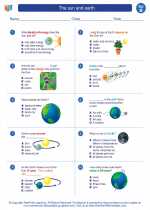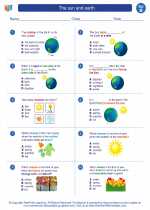Mountain
A mountain is a large landform that rises prominently above its surroundings, typically having a peak or summit. Mountains are formed through tectonic forces, volcanic activity, or erosion and weathering processes over millions of years. They are characterized by steep slopes, rocky terrain, and diverse ecosystems.
Formation of Mountains
Mountains are formed through various geological processes:
- Tectonic Forces: When tectonic plates collide or move apart, they can create mountains through processes such as folding, faulting, and uplift.
- Volcanic Activity: Volcanic mountains are formed when molten rock (magma) erupts onto the Earth's surface and solidifies, building up over time.
- Erosion and Weathering: The gradual wearing down of the Earth's surface by natural forces such as water, wind, and ice can create mountains over long periods of time.
Types of Mountains
There are several types of mountains based on their formation:
- Fold Mountains: Formed through the folding of rock layers due to tectonic forces, such as the Himalayas.
- Fault-Block Mountains: Created when large blocks of the Earth's crust are uplifted along faults, such as the Sierra Nevada in the United States.
- Volcanic Mountains: Formed from volcanic activity, with examples including Mount Fuji in Japan and Mauna Loa in Hawaii.
Ecological Importance
Mountains are ecologically diverse and support a wide variety of plant and animal species. They also play a crucial role in regulating the Earth's climate and water cycles. The unique habitats found in mountains contribute to global biodiversity and provide important resources for human populations.
Study Guide
Here are some key points to remember about mountains:
- What are the three main processes involved in the formation of mountains?
- List and describe three types of mountains based on their formation.
- Explain the ecological importance of mountains and their impact on the environment.
- Identify at least three famous mountain ranges or peaks around the world and describe their significance.
Understanding the formation, types, and ecological significance of mountains is essential for appreciating the Earth's diverse landscapes and the interconnectedness of natural systems.
[Mountain] Related Worksheets and Study Guides:
.◂Science Worksheets and Study Guides Second Grade. The sun and earth

 Activity Lesson
Activity Lesson
 Worksheet/Answer key
Worksheet/Answer key
 Worksheet/Answer key
Worksheet/Answer key
 Worksheet/Answer key
Worksheet/Answer key
 Worksheet/Answer key
Worksheet/Answer key
 Vocabulary/Answer key
Vocabulary/Answer key
